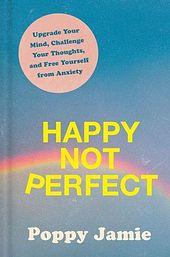hen we aren’t happy, we obsess about the absence of happiness. We think we have to solve all our problems to be this picture-perfect idea of “happy”. But doesn’t that sound exhausting? We block ourselves from achieving real happiness and don’t realise that it isn’t about fixing problems, but changing how our brain thinks.
There’s a brilliant quote in Gelong Thubten’s book, A Monk’s Guide to Happiness: Meditation in the 21st Century, that I think sums this issue up perfectly: “Our happiness and our problems both depend upon our state of mind. Yet most of us go through life with very little insight into the mind and its true potential.”
That’s because mental flexibility is one of the most underrated skills. Mental (or cognitive) flexibility is the ability to adapt to changing circumstances on the fly. At a basic level, it’s how capable we are of switching between two different tasks. But on a wider level, it’s how capable we are of adjusting how we approach life and overcoming the habitual responses that come so naturally to us, even to our detriment.
In the simplest terms, achieving happiness through mental flexibility is about being better able to manage our thoughts. It’s reaching a position of inner peace where we are less tormented by our problems. Happiness is not a lack of problems altogether. This is impossible – no matter how happy you are or how much you think you’ve got your life together.
We’re so busy chasing happiness that by the time we achieve something that makes us happy, we’re already looking for the next hit. The modern world is massively invasive and puts the focus on everything we’re missing. So we start panicking if we don’t feel happy.
If we’re not happy, something must be wrong, according to the media. We don’t have those shoes that’ll make us feel great. We’re not as thin as we’d like to be. We overlook all that’s good in the moment because we’re focusing so much on everything we’re missing.
Let’s change that.
We need to equip ourselves with the tools to improve our mental flexibility: the ways you can actively keep yourself in the moment and appreciate everything that’s happening right now, as opposed to focusing on anything you’re lacking. In a sense, we can choose to be with feelings of unhappiness in a more happy, content way.
I’m not saying a simple click of your fingers is all it takes to move from depressed or anxious into a state of happiness and positivity. If only things were that simple. But we do hold the power to be happier as people.


